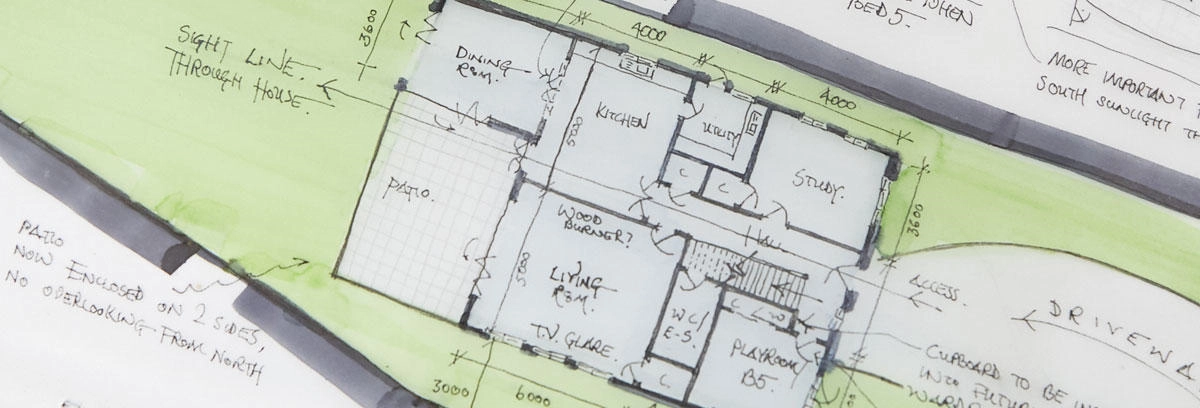
“Quantity surveying is for you if you have an analytical brain, and enjoy working with numbers and working with people.”


Learn the fundamentals of construction cost management - from estimating project bids, to analysing cashflow and managing contracts - vital skills to start your career as a quantity surveyor.
Contact international admissions
Email: Call:This vocationally-focused course delivers all the knowledge and skills you'll need to start a career as a quantity surveyor in construction: from tendering to win a project bid, to analysing cash flow, and effectively managing contracts.
Throughout the course, you'll build a sound knowledge and understanding of the role of cost management professionals in construction, as defined by the professional bodies, and its application in different contexts within the built environment.
At the heart of the course is the development of your problem-solving skills, providing you with the knowledge to provide sound and justified cost management advice and guidance in a variety of different formats. To aid this, you'll be encouraged to develop your technical writing and presentation skills throughout the course.
To encourage inter-disciplinary working, you'll frequently work alongside students studying on our other construction-related programmes, including apprentices and those on our construction management courses. This will help enhance your understanding of industry and offers excellent peer-to-peer learning opportunities to broaden your knowledge.
You’ll have access to Solent’s state-of-the-art construction materials laboratories. These modern spaces have recently been refurbished as part of a £7m investment into our facilities and have been developed to give students access to an environment which mirrors the feel and atmosphere of a professional studio. This enables students from various built environment courses to collaborate on multidisciplinary projects, just as they would in the workplace.
While work experience and placements are not mandatory to the course, students are strongly encouraged to complete it where possible. Using our industry links, the course team will endeavour to provide a range of suitable opportunities for you over the duration of your course, in between formal study periods.
Solent University is an experienced and well established provider of built environment programmes, with an excellent reputation for providing high quality graduates. Our teaching team combine broad industry experience with academic expertise, so you can be confident you're are being taught by experts in their field. Throughout this programme, we'll help you develop your technical and managerial expertise, with sustainability and ethical practice at the heart of what we offer.
We're proud to be one of only three institutions to be shortlisted for the Best HE Provider Supporting Careers in Construction award at the 2025 Building the Future Awards.
If you’re looking to study our quantity surveying degree but don’t have the relevant qualifications or experience, the art and design foundation year will help you develop the core skills and knowledge to progress. Find out more about the art and design foundation year.
This course is ideally suited to students who have a general interest in construction and who want to specialise in cost management. Applicants should have a logical approach to thinking and have an eye for detail.
Upon successful completion of this degree, graduates will be able to commence a career in cost management in the construction industry. Typical roles for graduates would include assistant quantity surveyor, assistant commercial manager or assistant contracts manager.
Hear from Solent alumni about where their careers have taken them and how studying at Solent prepared them for their future.

“Quantity surveying is for you if you have an analytical brain, and enjoy working with numbers and working with people.”

You will be taught by a team of enthusiastic and approachable academics. All academics are current members of the Chartered Institute of Builders (CIOB), Institution of Civil Engineers (ICE), Chartered Association of Building Engineers (CABE), the Royal Institute of Chartered Surveyors (RICS) or the Royal Institute of British Architects (RIBA). The course team have extensive industry experience gained during time spent in various construction roles. The team draw on this experience to continually improve the curriculum and maximise learning opportunities.
The University cannot guarantee any particular members of staff will teach specific aspects of the course in the future, but will endeavour to ensure the teaching team maintains their balance of experience and qualifications.
Students make use of our recently refurbished construction laboratories, a dedicated drawing studio, and industry-standard software during their degree.
This modern studio space has been developed to give students access to an environment which mirrors the feel and atmosphere of a working professional studio. This encourages students from various different built environment courses to come together and collaborate on multidisciplinary projects, just as they would in the workplace.
The module starts with a look at the nature of law in England and Wales, including types of law, how laws are created and an outline of the court system. A particular focus will be on contract law.
This module has two distinct parts, the first will introduce taking-off, drawing and numerical processes and procedures commonly used in construction. The second will introduce the principles of construction surveying and applications in construction management practice.
You will be able to utilise the different construction technologies and methods available to you successfully, it is fundamental that you have an understanding for the scientific principles and material behaviour that underpins them and influences their use in construction.
Working in groups you will consider a project brief applying resources and techniques to discuss and make alternative suggestions for the project to produce a more efficient, innovative and sustainable approach.
This module has two distinct parts; the first introduces you to the business and organisational environment that construction managers and quantity surveyors operate within. The second introduces you to the roles, procedures and practices associated with professionals within the built environment especially quantity surveyors.
This module addresses the technology used in the construction of low-rise buildings including light industrial buildings and low-rise commercial buildings. It also introduces the different technological concepts used to enable the construction of building elements; from substructure to completion.
In this module you will gain an understanding of the application of theories in practical construction situations. In particular you will focus on construction site management, including people and other resources.
This module covers a range of activities that promote effective decision-making and positive business performance within construction industries, including; financial performance analysis techniques, profit and loss forecasting, project and head office cash flow analysis and general overheads budgeting.
As quantity surveyors it is important that you understand the principles of pricing construction projects through accurate estimating. In this module, you'll be introduced to commercial activities at pre-contract stage, focusing on the role of the estimator. You'll develop your ability to produce rates for various elements of construction work and trade packages using a range of techniques. You'll also be introduced to the tendering process, how to develop tender documentation, and the tender evaluation process.
This module is aligned closely with the expectations and requirements of industry, so you will learn the professional ethics and the need for honesty and accuracy in reporting that is crucial for a successful career. Here you will learn quantification of construction work using manual techniques as well as industry-standard software.
This module investigates how the construction industry can achieve sustainable outcomes during the design, construction, operation and end of life of a project.
This module will enable you acquire a deeper understanding of construction technology principles at a more advanced level. The technology of high-rise construction, including quality aspects, is the central focus.
This module will build on the principles you have learned in levels 4 and 5, to give you a real understanding of the commercial activities that take place within a construction organisation.
On this module, you'll build your knowledge, allowing you to analyse and resolve complex issues in cost management, quantity surveying practice, stakeholder management, and supply chain processes to develop your understanding of these to analyse the challenges. You'll also be introduced to building information modelling, its application to cost management, and its impact on the role of the quantity surveyor.
You will develop an appreciation of the different types of construction contracts and procurement methods that are available but will have a deeper understanding of the most common contract used in the industry.
The module draws together the technological, management, financial and professional practices encountered at Levels 4 and 5 and investigates, in greater depth, how clients and the industry interact during the development process.
This module will enable you to find solutions to problems that you will encounter whilst working in various roles in future. You will select a topic of your choice to explore in-depth to find answers to the issues that we encounter in the industry.
Contact international admissions
Email: Call:Solent’s curriculum framework builds on our unique, creative and applied approach to teaching. The transformation of students’ lives is at the heart of our mission as a university, and our curriculum – informed by the latest theory – reflects this shared educational vision.
Find out more
The student achievement team are on hand to help you succeed during your studies at Solent. They aim to contact you at key times during your time here with personalised information, advice and guidance, by email or phone.
The disability advice team provides information, advice and guidance for disabled students.
All students can access Succeed@Solent, Solent's online guide to getting better grades. It offers extensive, practical information and advice on topics such as academic writing, research and presentations.
The UK construction industry is thriving. As the economy develops, residential housing remains the fastest growing area in the sector. There is increasing demand for talented graduates equipped with the right skills, and this course will help to prepare you for work in this exciting industry.
With the announcement of major infrastructure projects such as the Lower Thames Crossing, a new nuclear power station at Sizewell C, in addition to house building targets of 1.5 million new properties by 2029, there is a huge demand for construction project managers. The breadth of the industry ensures you can work on a huge range of projects, and with the knowledge and skills you gain with us, you can be involved in all stages.
Effective cost management skills are at the heart of the construction industry. With industry output worth over £110 billion per annum and contributing 7% to UK gross domestic product, construction offers a huge variety of opportunities, with excellent salaries and employment opportunities both in the UK and abroad.

Graduates: £21,000 to £28,000
Newly trained chartered surveyors can earn around £25,000 to £35,000. With experience, you can earn around £35,000 to £55,000. Salaries at management level range from around £50,000 to in excess of £80,000.
Starting salary: £22,000
Experienced estimators can earn between £31,000 and £53,000. Senior, chartered or master estimators can expect salaries of around £60,000 reaching up to £80,000.
The stated salaries are published on prospects.ac.uk. Income figures are intended as a guide only.
Hear from Solent alumni about where their careers have taken them and how studying at Solent prepared them for their future.

“Quantity surveying is for you if you have an analytical brain, and enjoy working with numbers and working with people.”

The Solent Careers team is committed to getting students into great careers.
While you are studying, the team can help you with finding work experience or placements, link you with a mentor, check your CV, or offer one-to-one guidance.
We also have graduate job opportunities just for Solent graduates.

6th
UK uni for sustained employment
Longitudinal Educational Outcomes, 2022
We're proud to be one of only three institutions shortlisted for the Best HE Provider Supporting Careers in Construction Awards at the 2025 Building the Future Awards. The award recognises a higher education provider who is leading the way in enabling students to succeed in a career in construction. Judges take into account the way institutions imbue learners with the skills and knowledge they need to thrive in the industry.

The tuition fees for the 2026/27 academic year are:
For further information, please visit our tuition fees page.
While most course costs are covered by your tuition fees, some essential resources and optional extras may need to be paid for separately. These additional costs are listed below. For advice on budgeting and managing your money, please contact student.funding@solent.ac.uk.
The 2026/27 additional costs are not yet available. For guidance, previous additional costs have been:
Compulsory costs
Students will be required to have the following personal protective equipment for construction site visits:
* Prices accurate June 2020.
Solent University offers a range of bursaries and scholarships that provide financial assistance or waive fees for tuition or accommodation. Each bursary or scholarship has specific eligibility criteria. Check out our bursaries and scholarships pages to find out more.
Cost of living support
At Solent, we understand that the cost of living crisis may be of some concern. To help, we've put together some detailed information to show what support is available and how to make your money go further.
Graduation costs
There is no charge to attend graduation, but you will be required to pay for the rental of your academic gown (approximately £45 per graduate, depending on your award). You may also wish to purchase official photography packages, which range in price from £15 to £200+. Graduation is not compulsory, so if you prefer to have your award sent to you, there is no cost. Extra guest tickets will go on sale after results publication and will be sold on a first-come-first-served basis. The cost per ticket is currently £20. Please note, we do not guarantee there will be any extra tickets available to purchase.
Contact international admissions
Email: Call:Please select an option below:
As a general guide, we look for qualifications that are equivalent to the British high school A-levels.
If you are applying from outside the UK, find information about entry requirements, visas and agents for your country here.
For further information about EU qualifications, please see our course entry requirements document.
As a general guide, we look for qualifications that are equivalent to the British high school A-levels.
If you are applying from outside the UK, find information about entry requirements, visas and agents for your country here.
For further information about international qualifications, please see our course entry requirements document.
All international applicants need to be aware that the English language requirements to attend Solent University, and the English language requirements to obtain a visa from the Home Office, may be different. This means that if you meet the Solent University language requirement to gain a place on the course, you may still have to meet additional requirements to be granted with a visa by the Home Office.
We strongly advise all applicants to visit the Home Office website which outlines all the requirements for a successful visa application.
Full-time
Any student applying for the first year of a full-time/sandwich undergraduate course must apply through UCAS (University and Colleges Admissions Service). This includes mature, overseas and EU students.
Nearly all schools and colleges offer their students the facility of applying electronically through the UCAS website using 'Apply'; it may also be used by those applying independently in the UK and overseas. This facility and all course information can be found on the UCAS website: www.ucas.com.
Your application should reach UCAS by 26 January if you hope to enter a course the following autumn. Early application is advised for the most popular subject areas. Late applications may be made until the end of June. The UCAS Code for the University is S30, code name SOLNT.
Find out what happens after you apply
Contextual offers
Solent endeavours to offer learning opportunities to students from all backgrounds. When we receive and review an application, we take into consideration the context and personal circumstances of applicants when making a decision, which means our advertised entry tariff could be reduced.
Find out more about Solent's contextual offers
Top-up route
We welcome applications from students currently studying a Foundation Degree, DipHE, HNC, HND or modules of an undergraduate degree course at another university, who wish to enter directly into Years 2 or 3 of one of our undergraduate degree courses. Please contact our admissions team for more information: contact us
Part-time route
Applications for part-time and distance learning courses are made directly to the University and can be made at any time prior to the start of the course. If you have any questions about applying for this course, please contact the admissions office by emailing admissions@solent.ac.uk.
Top-up route
We welcome applications from students currently studying a Foundation Degree, DipHE, HNC, HND or modules of an undergraduate degree course at another university, who wish to enter directly into Years 2 or 3 of one of our undergraduate degree courses. Please contact our admissions team for more information: contact us
Part-time route
Applications for part-time and distance learning courses are made directly to the University and can be made at any time prior to the start of the course. If you have any questions about applying for this course, please contact the admissions office by emailing admissions@solent.ac.uk.
Applicants who do not have English as their first language will be required to demonstrate an approved level of proficiency in the use of the English language. The agreed minimum requirements for this course are:
TOEFL IBT tests taken prior to 21 January 2026
TOEFL IBT tests taken from 21 January 2026
Qualifications are checked before enrolment, and international students must bring their original certificates or certified copies when coming to study at the University.
Pre-Sessional English programme
The University also offers a pre-sessional English programme for international students who wish to improve their level of English before starting a degree course.
Contact international admissions
Email: Call: